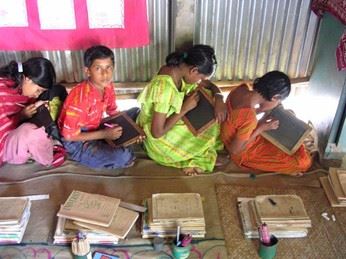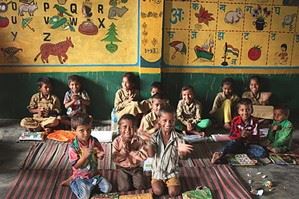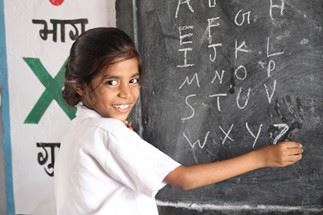

25th April 2022
Education is a foundation that helps people build bigger and better things for themselves and for others. It is the key to personal growth and development. The importance of education cannot be denied. It encourages the skill of critical thought, knowledge, and life-skills. However, the problem arises when a section of society does not have access to this foundation.

The Higher Education system in India is the second largest in the world, yet just 27.1% of the eligible age group enroll in higher education in India. Higher education is a catalyst, it helps to create our changemakers and shape the future of our country. Every student deserves the opportunity to access higher education.
Middle class and upper-class families have the resources and knowledge to support their children and encourage them to pursue studies even after school. However, in the disadvantaged families, this "privilege" is not always available to the children involved. In fact, even the students who qualify for higher studies cannot excel to their fullest potential due to their poverty and lack of sustenance. This system requires an intervention to support these students so that they get the opportunity to fulfil their goals.

The Impact of Privilege
Privilege can be defined as a special entitlement, or advantage given to one person over another. In this case, the underprivileged suffer from a lack of equal access to resources and are disadvantaged over others. There is a widespread belief that education is a vehicle that can help to pull families out of poverty, and it is with this belief that a focus on the underprivileged becomes necessary. The impact of privilege is that people never need to transcend their living situation, as they are usually already in a position of comfort and support. However, for those without resources, education gives them and their families the path to a better standard of living.
A Digital Divide
One of the most obvious gaps between the haves and the have-nots in this day and age, especially during the Covid-19 pandemic, is the digital divide. Due to the pandemic, schools and colleges had to bring about a digitization of education. This meant that those who did not have access to devices like phones, laptops, or television, did not have access to their education. In India, only 47% of households have internet for more than 12 hours a day and more than 36% of schools do not have electricity. This, again, brings back the disadvantages that poorer families had to face. Students who have the resources could shift to e-learning almost seamlessly, while those without the resources faced a lot of problems, both due to lack of access to devices, and because there was nobody to guide them through learning how to use the devices.

Are Scholarships the Way?
Scholarships are designed to provide students with financial support that they would not otherwise have. It is meant to help students pursue their education, and more often than not, is dependent on academic achievement and excellence. Those who excel may not always have the resources to continue their education, and the scholarships provided help to bridge that gap. In economic terms, it does help in contributing to national development, as more people study further and consequently enrich the economy. In humanitarian terms, it allows people to not be restricted by an unfortunate reality and pulls them into the ability to live up to their potential. The aim of this is to surpass the financial and societal limitations and move ahead one step at a time.

The Role of Right to Live
Right to Live aims to close this gap faced by underprivileged students by providing them with scholarships to support their higher education. Bright students from poor financial background deserve to pursue their dreams, and Right to Live is determined to make that happen. The "Education Scholarship" by Right to Live was established in 2012 and is awarded to the best and brightest after rigorous verification. In 2019-20, 22 students received this scholarship, and this paves the way toward supporting more and more students as the years go on. The aim right now is for further expansion, to be able to award this scholarship to 50-100 eligible students. Education is the turning point in many people's lives, and every child should have the chance to access it.